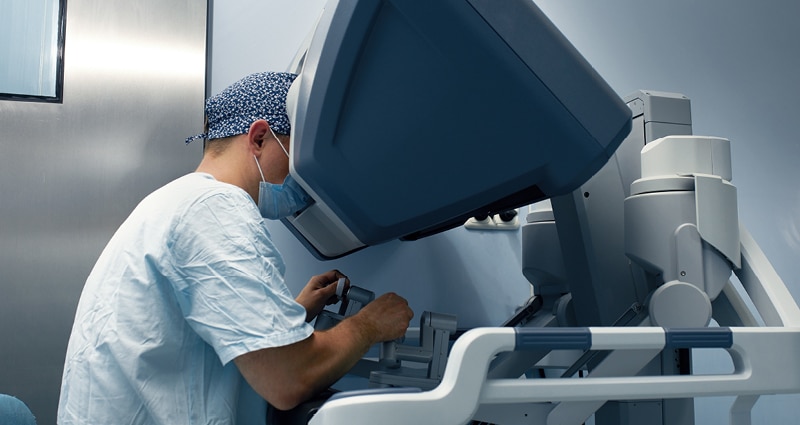If your surgeon told you that robotic surgery might be an option for your upcoming surgical procedure, how would you react? Would you be “all in” for a technology that sounds like something from a sci-fi movie, or would you want to do some research about what robotic surgery involves?
If you fall in the latter group, you’re in good company. Many people have some level of uncertainty when it comes to traditional surgeries, but perhaps even more so when a robot is involved.
With that said, robotic surgery, which provides a minimally invasive way to perform certain surgical procedures, offers some distinct benefits.
1. Smaller Incisions
Robotic surgery uses tiny incisions rather than the larger incisions used for a traditional procedure.
There’s a good reason for that. During a traditional procedure, the incisions have to be large enough to allow a surgeon’s hands and instruments inside the body. That’s not the case with a robotic surgical procedure. When robotic surgery is performed, your surgeon will make tiny incisions and then insert similarly tiny instruments and a camera into the surgical site.
His or her hands do not need to go inside the surgical site. Instead, your surgeon makes the movements to perform the surgery while seated at a nearby console. The instruments in the body move in real-time with your surgeon’s hand and wrist movements, allowing for greater dexterity than is possible without robotics.
2. Reduced Pain
Because incisions are smaller, less tissue is impacted during the surgical procedure. That generally means a patient will experience less pain—and require fewer medications to manage postoperative discomfort.
3. Lower Infection Risk
Because robotic surgery is less invasive than a traditional surgical procedure, the risk of developing an infection after the procedure is reduced.
4. Shorter Hospital Stay
Patients who undergo robotic surgery are typically able to get back on their feet in a shorter period of time, which often results in a faster discharge from the hospital.
5. Quicker Recovery
In addition to a faster discharge from the hospital after robotic surgery, patients undergoing robotic surgical procedures also often recover more quickly overall. This can mean a faster return to normal life, including daily activities and work.
6. Less Scarring
Fewer, smaller incisions result in fewer, smaller scars, which lessen the potential for scarring to cause physical limitations or mental distress.
7. Reduced Blood Loss
Research has found that robotic surgical procedures typically result in decreased blood loss and lower rates of blood transfusion when compared with traditional procedures for the same medical conditions.




